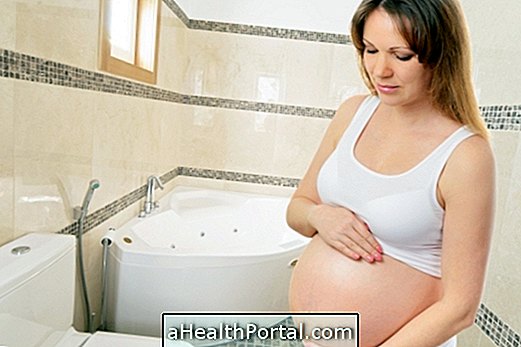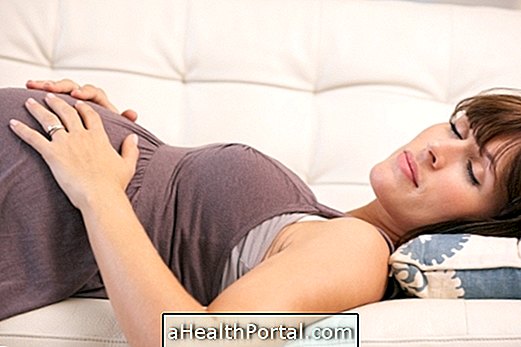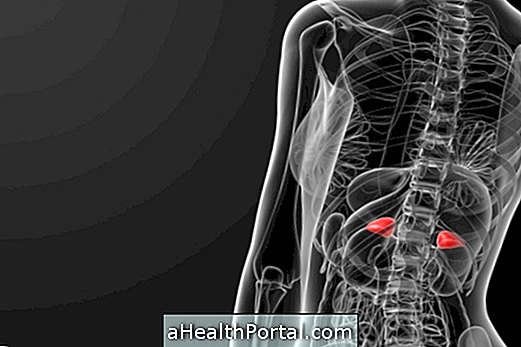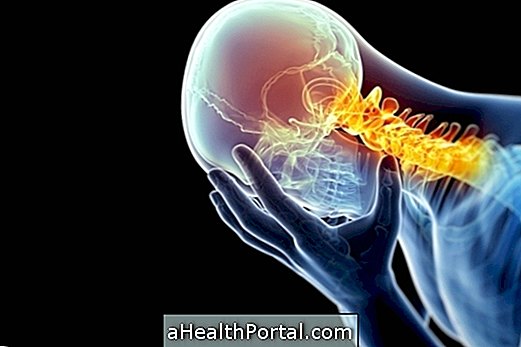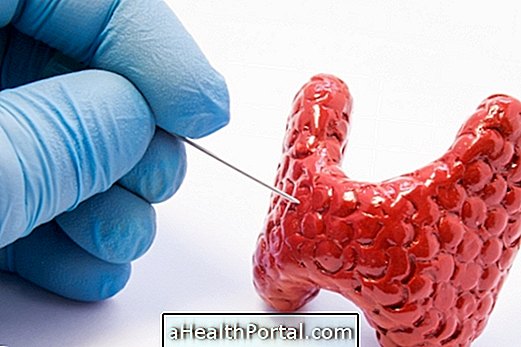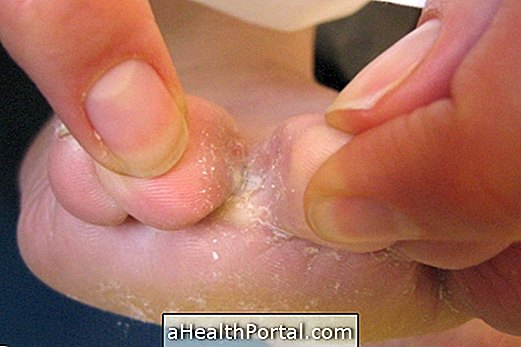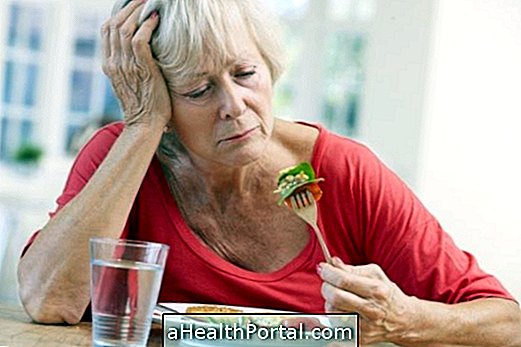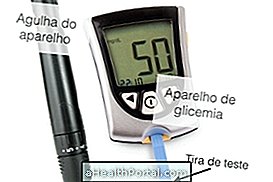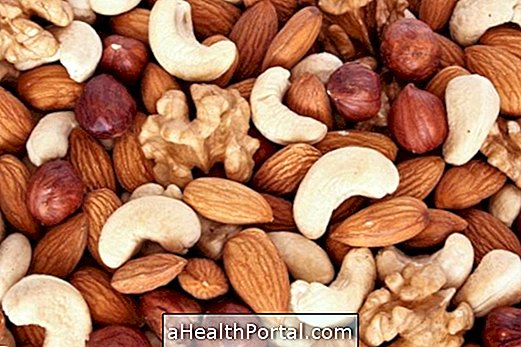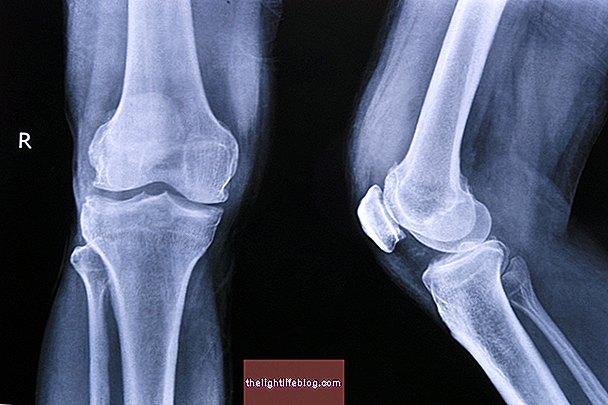Colic during pregnancy is normal, especially at the beginning of pregnancy due to the adaptation of the mother's body to the growth of the baby and also at the end of pregnancy, around 37 weeks of gestation, giving evidence of the beginning of labor.
However, there are other situations that can cause severe and persistent cramps in pregnancy, and that should be evaluated by the doctor. Also, if cramps do not stop after a while or are accompanied by vaginal bleeding, runny or fever, it is important to see a gynecologist.

Main causes of colic in pregnancy
Some situations that can also cause colic in pregnancy are:
1. Tubal pregnancy
Tubal pregnancy, also called ectopic pregnancy, occurs when the embryo does not develop in the uterus, but rather in the uterine tubes, which usually leads to bleeding and miscarriage. Understand more about what is ectopic pregnancy, major causes and how the treatment is done.
2. Ovarian detachment
The ovular detachment is caused by the detachment of the gestational sac before the 20th week of gestation and is characterized by the presence of a hematoma caused by the accumulation of blood between the uterus and the gestational sac. This hematoma may worsen with exertion, and the larger the hematoma, the greater the risk of preterm birth, miscarriage, and placental abruption. Learn more about ovular detachment.
3. Placental abruption
Placental abruption occurs when the placenta is separated from the wall of the uterus as a result of inflammation and change in blood circulation in the placenta, such as intense physical exertion and high blood pressure or preeclampsia, which causes vaginal bleeding and severe cramping. It is a dangerous situation and requires immediate intervention. Understand what causes and how to treat placental abruption.
4. Spontaneous abortion
Miscarriage can occur early in pregnancy because of various situations, such as excessive physical activity, use of medications, certain teas, infections, or injuries. Know 10 causes of miscarriage.
5. Labor
Colds that appear after 37 weeks of gestation, which have progressive intensity and become more constant over time may be indicative of labor. Learn how to speed up labor.
6. Other possible causes
Other possible causes of cramping during gestation are viruses, food poisoning, appendicitis or urinary infections. It is recommended to see a doctor as soon as the first pain occurs.

Colic in early pregnancy
In early pregnancy, it is normal to experience colic and usually corresponds to one of the signs of pregnancy. Colic at the beginning of pregnancy occurs due to uterus growth and adaptation to embryo implantation. Urinary or vaginal infections, with discharge, are also responsible for the onset of colic in early pregnancy. See what are the first 10 symptoms of pregnancy.
During pregnancy, the accumulation of gasses in the intestine can also cause colic by poor digestion of certain foods like beans, broccoli or ice cream. Colic following sexual intercourse in pregnancy is normal because orgasm also causes uterine contraction.
Colic at the end of pregnancy
Colic at the end of pregnancy may mean the time of delivery is approaching. This colic is a result of the baby moving inside the belly or its weight that presses muscles, ligaments and veins, causing pain and discomfort. Learn how to identify contractions in pregnancy.
How to relieve
Colic relief is done according to your cause and according to the medical recommendation. In some cases the obstetrician may prescribe the use of medications such as Buscopan to decrease the pain and discomfort of cramps but other medications may also be prescribed, depending on what is causing the colic.
Usually when the woman calms down and relaxes while resting her cramps decrease, but it is important to note how many times a day the cramps have arisen and in which situations they have improved or worsened.
When to go to the doctor
You should go to the doctor whenever the woman presents:
- Colds that do not give in to rest;
- Persistent or very painful cramps;
- If there are other symptoms such as vaginal bleeding, fever, chills, vomiting or pain when urinating, at the beginning or the end of pregnancy.
- If you suspect start of part work - See what are the signs of labor.
At the medical appointment the woman should tell all the symptoms she presents so that the doctor can identify what is causing the colic and then perform the necessary procedure.
